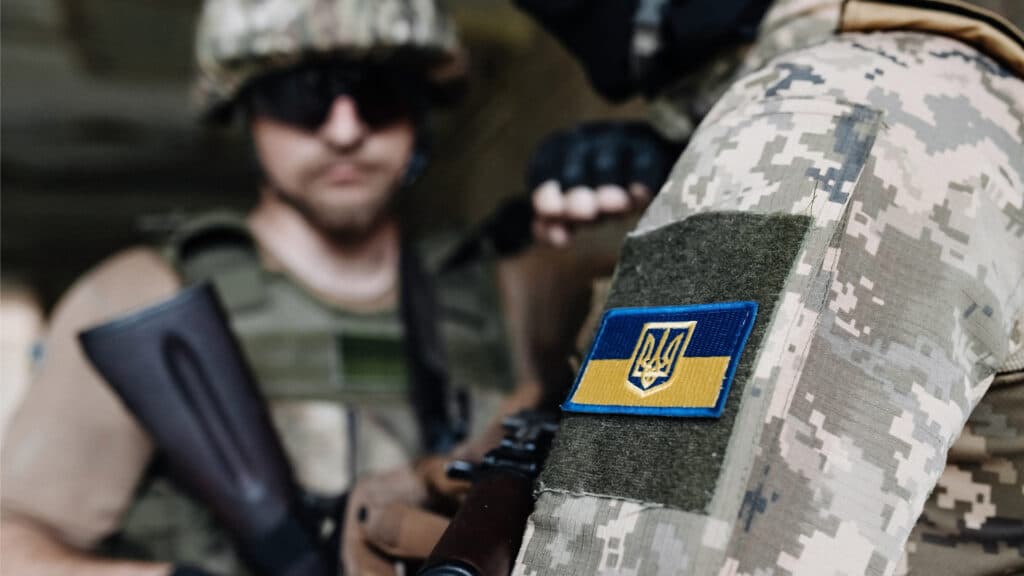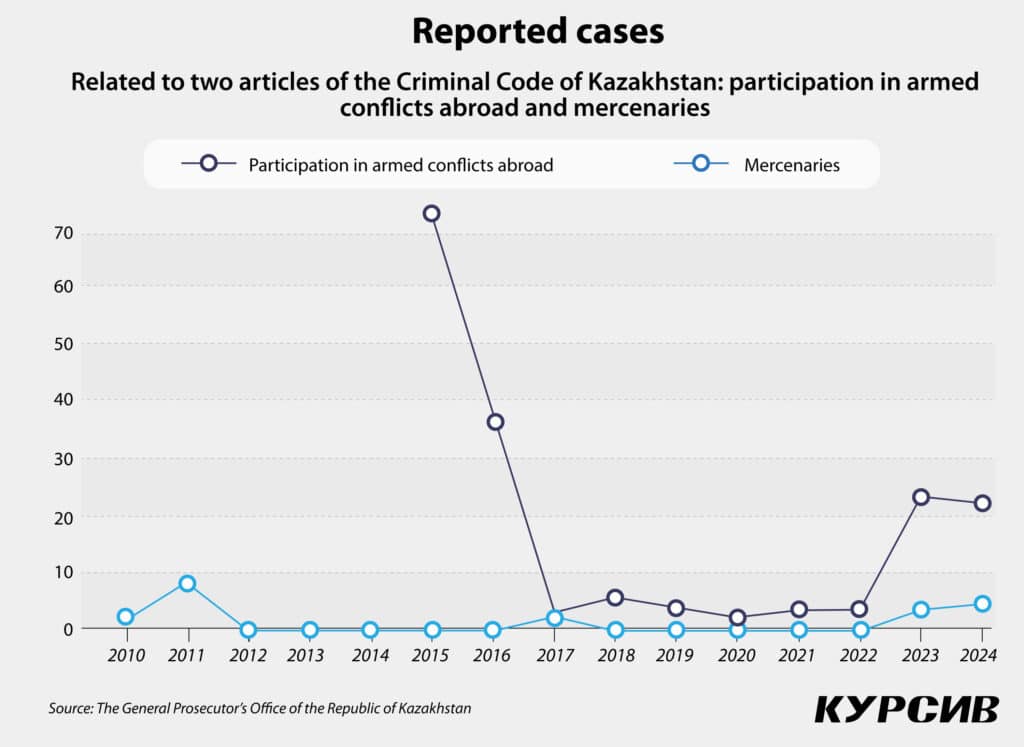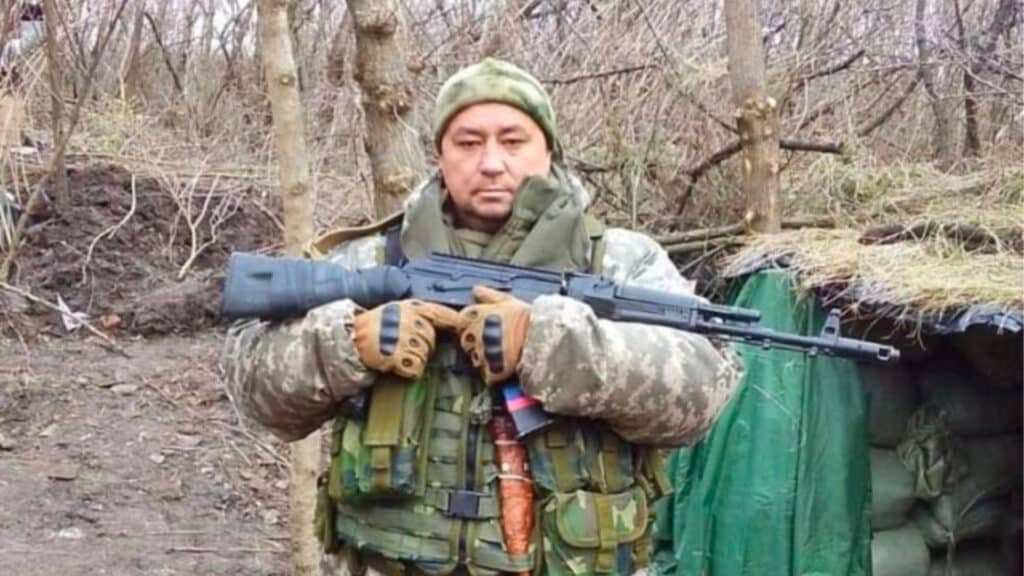Kazakhstan wants citizens to stay away from war in Ukraine and will prosecute those who disobey

Since the start of Russia’s invasion of Ukraine, Kazakhstani authorities have opened 46 criminal cases against citizens involved in military conflicts and seven for mercenary activities. However, it is unclear which specific conflicts these individuals participated in.
Kazakhstanis in foreign wars over the past decade
In March 2014, following Russia’s annexation of Crimea, Kazakhstan introduced a new article to its criminal code aimed at deterring citizens from engaging in mercenary activities. In 2015, the General Prosecutor’s Office recorded 73 such cases in its Unified Register of Pre-Trial Investigations (URPTI), followed by 36 cases in 2016. The numbers dropped significantly in subsequent years.
Since February 2022, however, following Russia’s full-scale invasion of Ukraine, these cases have been on the rise. Last year, 23 cases were opened against individuals accused of participating in military conflicts abroad. By October 2024, 21 more cases had been initiated. Over the past decade, Kazakhstan has launched 169 investigations into citizens participating in military conflicts abroad.
Kazakhstan’s criminal code also includes a separate article targeting mercenary activities, which has been in place for many years. Looking at data since 2010, the peak year was 2011, possibly reflecting Kazakhstani involvement in wars in Syria, Iraq, Afghanistan and other Arab states. The number of such cases fell sharply in the following years, reaching just one per year.
After the war in Ukraine began, this trend shifted. In 2023, three cases were recorded under this article and four more between January and October 2024. Since 2014, 18 cases involving mercenary activities have been documented.

A quarter of individuals accused of serving in foreign armies were unemployed (41 individuals), and another quarter lacked higher education. Similarly, among those accused of mercenary activities, four were jobless, and two had no higher education.
Kazakhstanis in the war in Ukraine in 2022 and 2023
In June 2022, media reports surfaced about Kazakhstani citizens fighting in Ukraine. For example, Azattyk covered the story of Zhasulan Duysembin, who had moved to Ukraine three years earlier and joined the Ukrainian Armed Forces (VSU) in 2022.
In October 2022, Kazakhstan’s National Security Committee (KNB) restricted public access to information about citizens fighting in foreign wars. This decision followed reports that some Kazakhstanis had allegedly been recruited by the Wagner private military company.
By February 2023, Azattyk reported the deaths of several Kazakhstanis in Ukraine, some fighting for Russia and others for Ukraine. For instance, Yuriy H., a 36-year-old from Karaganda, died near Bakhmut fighting for Russia. Another man from Karaganda — Alexander I. — also served in the Russian army and was buried in Kazakhstan in January.
In the same month, a 50-year-old resident of Zharkent joined Wagner on a one-year contract and fought in Bakhmut. After Wagner’s mutiny in the summer of 2023, he tried to leave but was only granted a two-month vacation. Upon his return to Almaty, he was detained by the KNB and sentenced to seven years in prison.
Media also reported on Baurzhan Urazov, son of former Uralsk mayor Samigolla Urazov. Holding Russian citizenship, he allegedly was mobilized into the Russian army against his will.

Later that year, Azattyk reported the death of a 33-year-old native of Semey near Ukrainian Bakhmut. According to his relatives, he was recruited by Wagner along with other citizens of Kazakhstan and natives of Central Asia to join their ranks alongside Russians.
In April 2023, Kursiv.media asked the KNB how many cases had been opened against Kazakhstani citizens fighting in Ukraine. At that time, the committee reported approximately ten such cases but refused to provide further details. Four months later, Kursiv repeated its inquiry, and the KNB revealed that 20 criminal cases had been opened, including 18 related to participation in military conflicts abroad and two involving mercenary activities.
In November 2023, the Karaganda court sentenced Alexey Shampolov, a local resident who fought for Wagner against Ukraine, to six years in prison. Like many other Wagner mercenaries, Shampolov learned about the group through social media.
Kazakhstanis fighting in Ukraine in 2024
In May 2024, the media reported the death of an 18-year-old Kazakhstani citizen, Danil Ermolenko, who fought for Russia under the callsign «Kazakh.» Meanwhile, the Memorial group on Facebook reported the death of Oleg Stepanovitch, a Kazakhstani volunteer with the VSU.

In September, Azattyk covered the story of a 21-year-old from a village near Aktobe. While working in Russia, he was detained and sent to the frontline after losing his passport.
«We don’t know what can happen to those detained people. If someone holds a gun to your head, you will sign anything. I don’t believe my son went to war voluntarily,» his father said.
Kazakhstani journalist Lukpan Akhmedyarov later reported the deaths of two ethnic Kazakhs in Ukraine: a 61-year-old former West Kazakhstan resident who went to war as a volunteer after watching Russian TV, and Aybek Ramazanov, who joined the Russian army in 2023. Both men held Russian citizenship.
In October 2024, several Kazakhstani media outlets questioned the number of ethnic Kazakhs killed in Ukraine. An anonymous volunteer estimated the number at 3,000 since 2022.
Separately, in September, a Russian court sentenced Kamil Kasimov, a deserter who fled to Kazakhstan, to six years in jail for refusing to fight in Ukraine.
As of September 2024, Ukraine and Russia are estimated to have lost approximately 80,000 and 200,000 soldiers, respectively, according to The Wall Street Journal.

